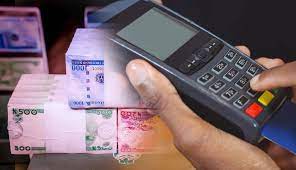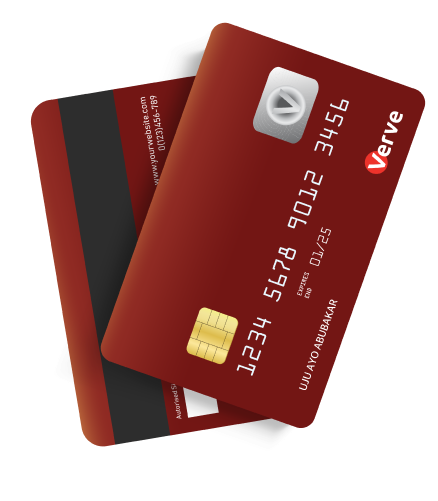Business
When Cash is the Enemy: The Potential of a Cashless Nigeria remains Untapped

When it comes to the role of physical currency in Nigeria’s evolving financial landscape, there are mounting costs and challenges that can no longer be ignored.
While cash remains king and the dominant form of payment, the expenses and burdens associated with its usage are becoming increasingly apparent.
From the production and distribution of physical currency to the costs of handling and securing cash, the financial burden is substantial.
Research has shown that cash-based economies like Nigeria face transaction costs that are 4-10 times higher than those reliant on digital payments. This results in the loss of millions of dollars each year, funds that could be redirected to more productive uses or invested in vital sectors such as healthcare and education.

These complexities not only hinder the efficiency of transactions, but they also contribute to the growth of an informal economy. Long queues and frustration at ATM terminals serve as reminders of the limitations of cash, while businesses struggle to manage large sums of money, leaving them vulnerable to theft and errors.
The necessity of transitioning to a cashless society has become increasingly apparent in recent times. Amidst a recent cash crunch accompanied by transaction failures, Verve cards emerged as a crucial lifeline for many Nigerians.
In supermarkets, where physical cash dwindled, Verve transactions facilitated the uninterrupted flow of essential supplies, staving off potential panic. Street markets, typically bustling with cash exchanges, experienced a notable shift as contactless Verve payments, facilitated through its partnership with Moniepoint, Opay etc, supplanted the chaos brought on by cash scarcity.
The immediate impact on businesses was profound – operations streamlined, financial security ensured, and confidence fostered during uncertain times. While the cash crunch underscored the limitations of a physical currency-based economy, Verve showcased the transformative potential of cashless transactions, providing a practical and resilient solution in the face of scarcity.
It’s no surprise that partners like Opay and Monnie Point have achieved significant milestones in a short period. While the Verve partnership isn’t the sole factor, its pivotal role cannot be undermined.
Verve cardholders now enjoy a myriad of services, with their Verve cards serving as the gateway to expanded opportunities.In neighboring Ghana has made significant progress in reducing its dependence on cash by embracing digital currency. Nigeria, too, is at a crossroads, deciding whether to cling to the familiarity of cash or embrace the transformative potential of a cashless future.While cashless alternatives are emerging, uneven ecosystems have hindered widespread adoption.
However, Verve, a Nigerian payment card network, is playing a key role in driving the adoption of card-based transactions in the country. The company’s commitment to providing convenient, secure, and efficient payment solutions has positioned it as a leader in the industry.
Verve offers a safe, affordable, and widely accepted platform that bridges the gap between cash and digital transactions.The widespread use of Verve cards reflects a growing acceptance of digital transactions, marking a shift away from reliance on cash.
By empowering individuals and businesses to embrace cards, Verve is paving the way for a more inclusive and efficient financial landscape.The benefits of a cashless society go beyond mere numbers. The enhanced security of digital transactions replaces the vulnerability of cash, which carries a higher risk of theft and fraud. With each swipe of a card, these risks diminish, and businesses gain greater transparency and control over their finances, allowing for better financial planning and growth.
Transitioning to card-based transactions also has the potential to foster a more secure and transparent payment ecosystem. Cash transactions are often untraceable, contributing to tax evasion and hindering the government’s ability to regulate economic activities. By leaving a digital footprint, every Verve card transaction promotes transparency and accountability, pushing the informal economy into the fold and fostering greater financial inclusion.
While the transition to a cashless Nigeria may have its challenges, card-based transactions offer a transformative solution. Verve’s leadership in the industry, with over 50 million payment cards issued, demonstrates the increasing acceptance of digital payments in the country.
By embracing the advantages of card-based transactions, Nigeria can navigate its economic landscape more efficiently, drawing inspiration from Ghana’s successes.This shift provides a practical way to mitigate security concerns, reduce reliance on cash, and foster a more transparent and secure payment ecosystem. Through collaborative efforts from the government, financial institutions, technology providers, and strategic partnerships with relevant stakeholders, Nigeria can unlock the vast potential of a cashless society.Verve, with its deep understanding of the Nigerian market and commitment to financial inclusion, stands ready to be a catalyst for change.
By embracing the transformative power of cards, not just as plastic rectangles and other forms of payment tokens, but as keys to a more secure, efficient, and prosperous payment ecosystem, Verve can lead Nigeria towards a brighter financial future.

